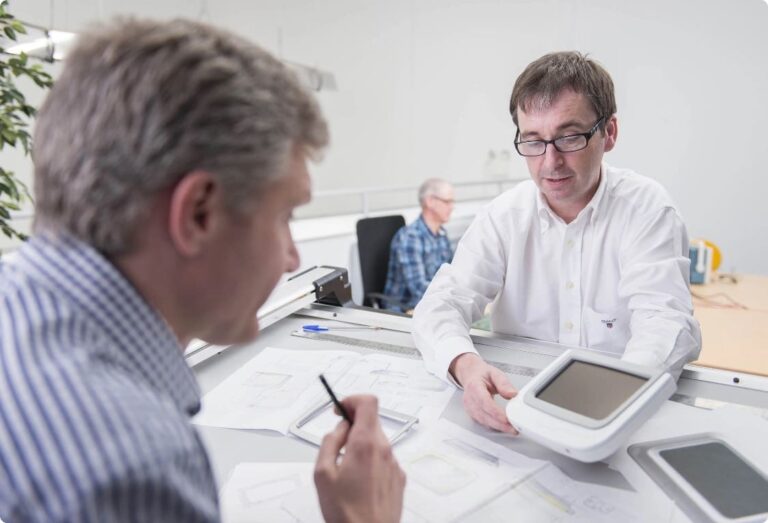Each May, the Alzheimer’s Society spearhead Dementia Action Week here in the UK. The World Health Organisation estimates that 55 million people are currently living with dementia worldwide, although the real number is likely to be much higher as many people delay seeking a diagnosis, often due to stigma and fear.
In the UK alone, 1 in 4 people know nothing about dementia, while 3 in 4 people misunderstand it*. In many societies dementia is seen as an inevitable sign of aging, while in sub–Saharan Africa (and in some communities in the UK), dementia is frequently considered to be due to witchcraft. What we do know is that reducing stigma is crucial in improving early diagnosis and access to care. It’s a huge task, but one that can be aided by the use of education and technology.
In the UK, the Alzheimer’s Society has produced a Symptoms Checker, which approved by Royal College of GPs, asks people to keep a record of their symptoms before attending their first primary care appointment with the aim of helping them talk about what is going on with them. People can visit the Alzheimer’s Society website and complete the form either online or download a print version. Evidence gathered by Alzheimer’s Society is seeing the Symptoms Checker flowing through into GP appointments, helping both the GP and the patient to capture the symptoms and move towards a diagnosis.
Technology can also play a part in helping people living at home with dementia, whether with memory problems – using simple alarms to set reminders to take medication, or with communication – pre-programming phones, using adapted equipment, digital puzzles or digital photo frames displaying images with music to spark both memories and conversation. Meanwhile, a new study from the University of Bath is challenging the stereotype that dementia is incompatible with digital work, saying that those with dementia can still be productive. The study suggests that modern technologies, including AI, can be adapted to help people with the condition remain in employment.**
For patients in residential care home settings, technology is being used to help staff support and care for patients with complex and demanding needs, while preserving the independence and dignity of residents with minimal intrusion. Intercall Safeguard for Dementia Care harnesses thermal imaging technology to monitor the patient environment. The ceiling mounted sensor allows independence and privacy while alerting staff to wandering residents, especially at night, and can automatically illuminate a light in the residents room to help reduce the risk of injury through falls. For daytime care, the Safeguard Portable Transmitter can be discreetly attached to furniture and fittings providing a simple wireless connection to assistive technology devices and the home’s nurse call system, where it can be individually programmed to raise the appropriate alerts.
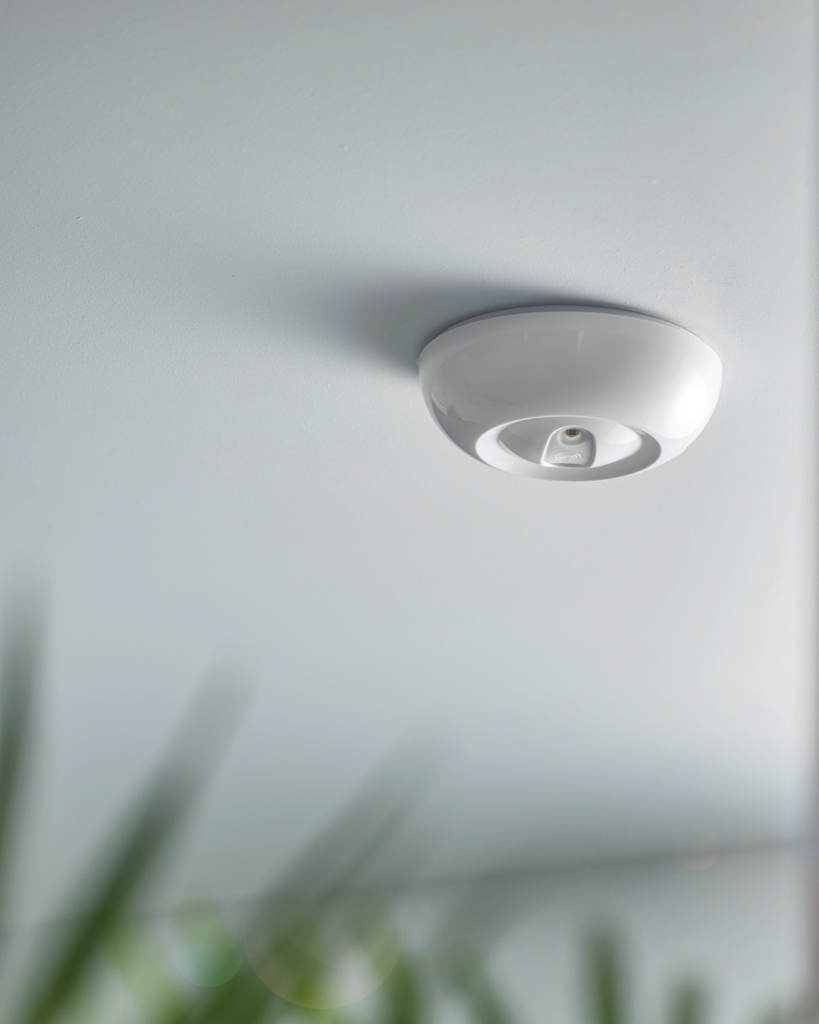
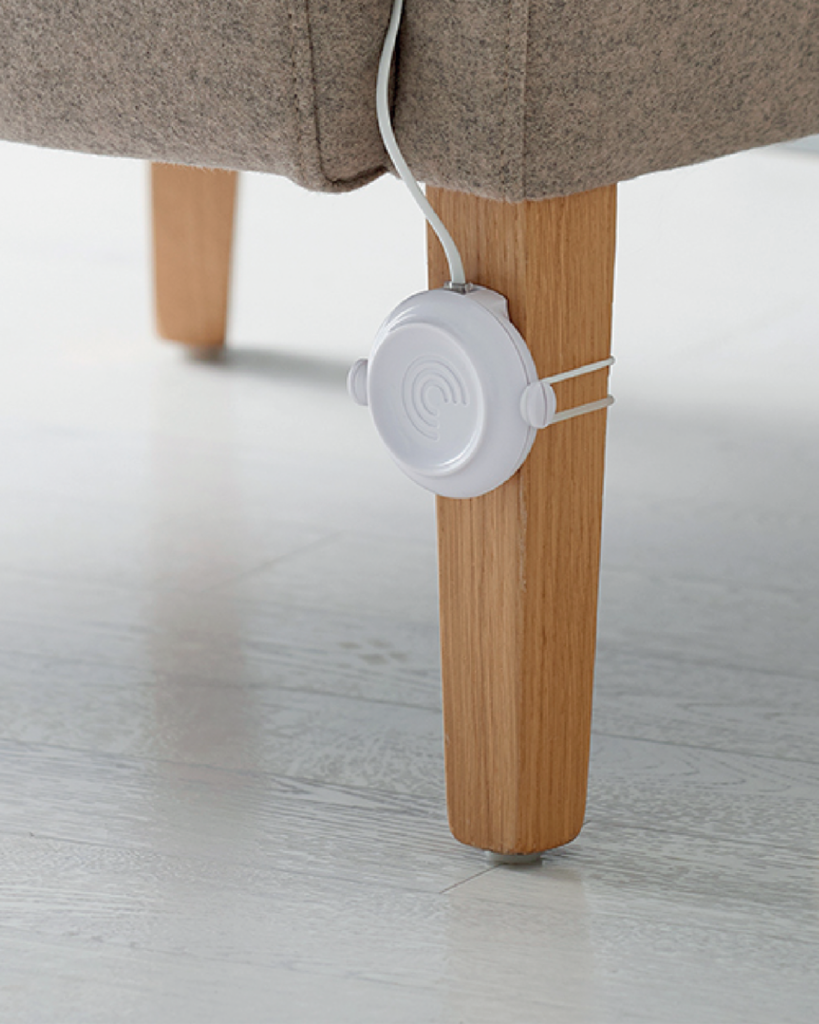
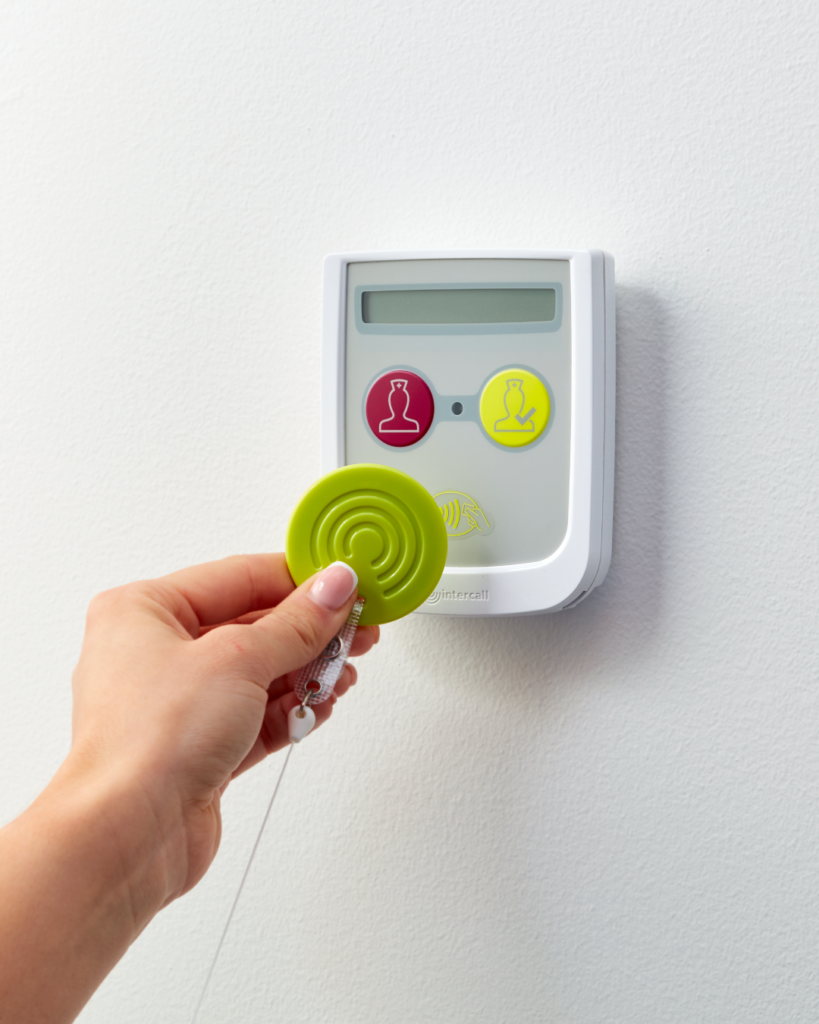
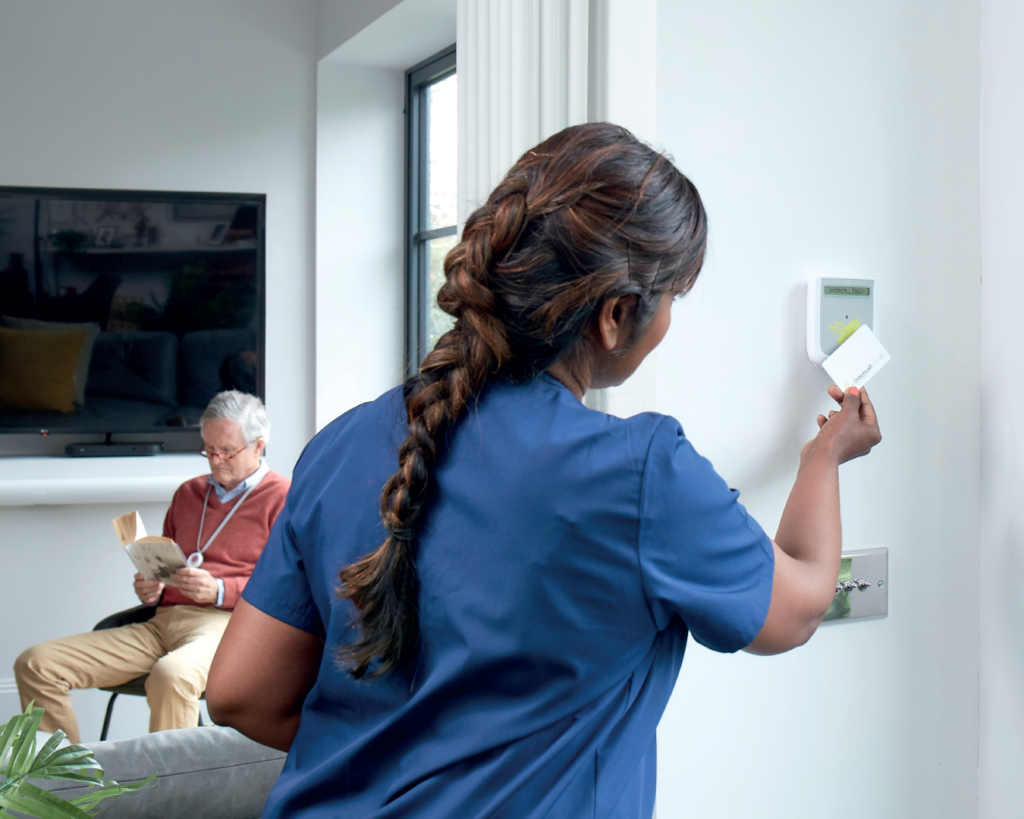
Care Managers are seeing the benefits of using Intercall Care Cards and Tokens, which when individually personalised for staff members can monitor staff response times, manage access to drug stores, log movement around the home and time spent in individual patient rooms, offering an extra level of security and reassurance for both families and the Managers.
With the number of people worldwide living with dementia expected to rise significantly by 2050 to 139 million, governments and healthcare providers will continue to look to technology to help educate, prevent and manage this challenging disease at every stage, from diagnosis through to day-to-day residential care.
To find out more, or arrange a demonstration of Intercall Safeguard for Dementia, call +441403 713240
*Alzheimer’s Society 2024
** Working Lives with Dementia: A digital futures perspective’ study https://bpspsychub.onlinelibrary.wiley.com/doi/epdf/10.1111/joop.70015


